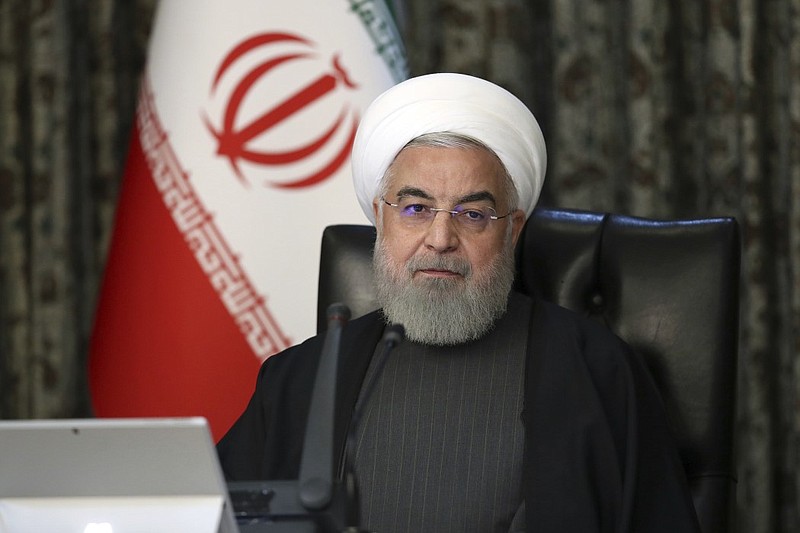JERUSALEM -- Israelis began coming to grips Saturday with the potential defeat of President Donald Trump, who enjoys widespread support there and whose presidency is seen by many as the friendliest to Israel in history.
Former Vice President Joe Biden, projected to win the U.S. presidential election, would inherit a Middle East policy that has tilted dramatically toward Israel in the past four years, with the United States moving its embassy to Jerusalem, suspending aid to Palestinians, declaring legal support for Jewish settlements in the West Bank and backing out of the Iran nuclear deal.
Biden could bring U.S. policy back in line with Democratic orthodoxy, for instance by championing a two-state solution to the Israeli-Palestinian conflict and opposing the expansion of West Bank settlements. But analysts say he is unlikely to insist on undoing all of Trump's initiatives.
Biden has criticized moving the embassy to Jerusalem but said he would not pull it back to Tel Aviv. Instead, many expect him to rebuild diplomatic relations with the Palestinian Authority by reopening a consulate in East Jerusalem and a Palestinian mission in Washington. Biden could also resume humanitarian aid to the Palestinians.
"It's not at all black and white with Biden," said Michael Oren, a former Israeli ambassador to the United States who has known the incoming president for decades.
Prime Minister Benjamin Netanyahu did not join the cascade of world leaders offering best wishes to Biden on Saturday. But early Sunday, he tweeted congratulations to both Biden and his running mate, Sen. Kamala Harris.
[Video not showing up above? Click here to watch » https://www.youtube.com/watch?v=a6ujirW3ht0]
"Joe, we've had a long & warm personal relationship for nearly 40 years, and I know you as a great friend of Israel. I look forward to working with both of you to further strengthen the special alliance between the U.S. and Israel."
The prime minister immediately followed that with a tweet thanking Trump for his policy gifts to Israel. "Thank you realDonaldTrump for the friendship you have shown the state of Israel and me personally," he wrote.
Netanyahu also opened a Cabinet meeting on Sunday by congratulating Biden and thanking Trump.
Israelis are perhaps most wary of shifts in Washington's stance on Iran. Biden was part of President Barack Obama's team that reached the Iran nuclear agreement, which lifted sanctions on Tehran in return for restrictions on its nuclear program. Trump's unilateral withdrawal from it is viewed by security experts in Israel as the greatest of his gifts to the country. Biden's promise to offer Iran a "path back to diplomacy" makes many in Israel nervous.
Tzachi Hanegbi, a minister from Netanyahu's Likud party, warned on Israeli television that Biden's return to the nuclear accord could lead to war. "If Biden stays with that policy, there will, in the end, be a violent confrontation between Israel and Iran," Hanegbi said.
Some Israelis are hoping that a Biden presidency could help ease the turmoil of recent Israeli politics. Netanyahu is often accused of mimicking Trump's rhetoric, helping stoke divisions in Israeli society.
"Israel is part of the democratic world," said Mordechai Kremnitzer, senior fellow at the Israel Democracy Institute. "And the way that President Trump has been conducting himself has not exactly been a great example to that world."
